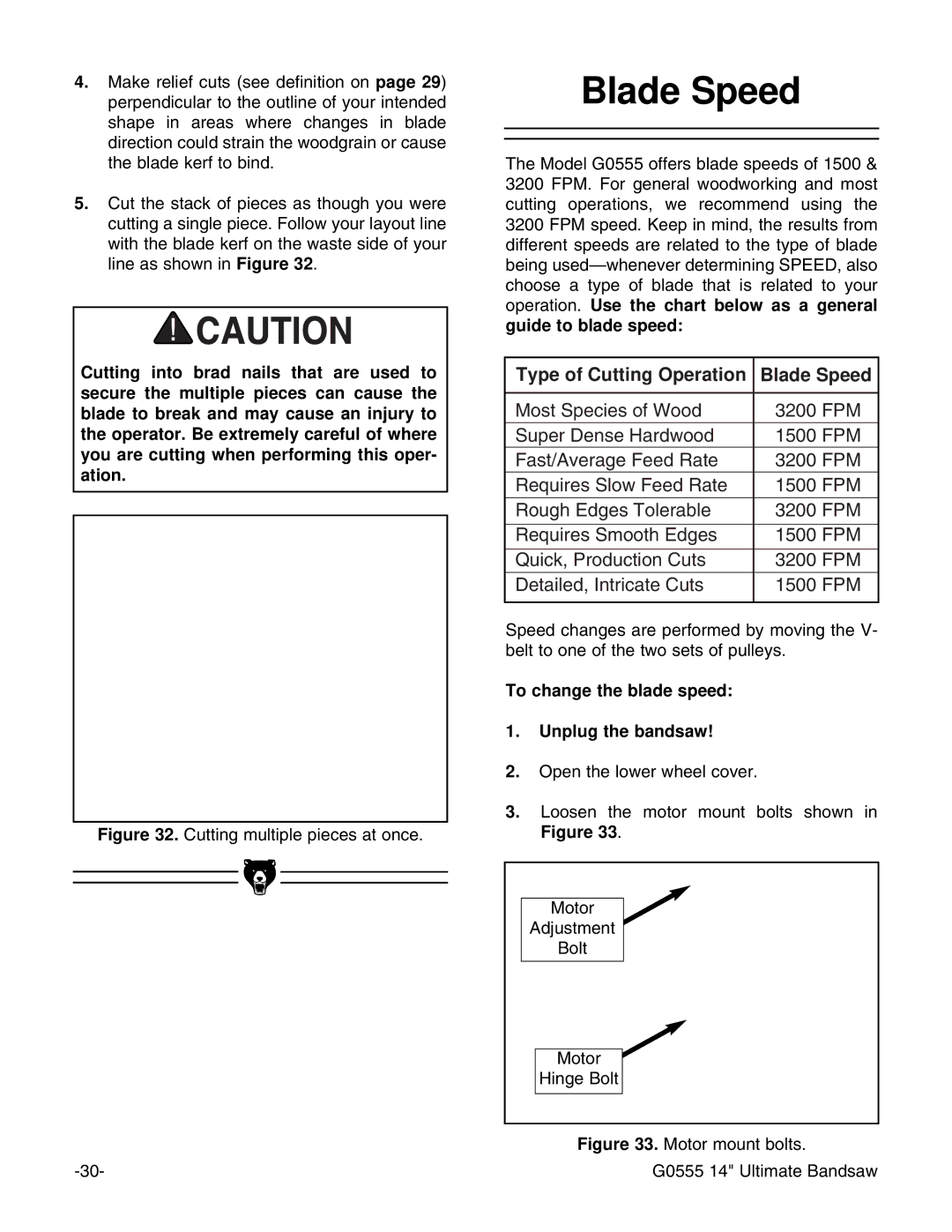
4.Make relief cuts (see definition on page 29) perpendicular to the outline of your intended shape in areas where changes in blade direction could strain the woodgrain or cause the blade kerf to bind.
5.Cut the stack of pieces as though you were cutting a single piece. Follow your layout line with the blade kerf on the waste side of your line as shown in Figure 32.
Cutting into brad nails that are used to secure the multiple pieces can cause the blade to break and may cause an injury to the operator. Be extremely careful of where you are cutting when performing this oper- ation.
Figure 32. Cutting multiple pieces at once.
Blade Speed
The Model G0555 offers blade speeds of 1500 & 3200 FPM. For general woodworking and most cutting operations, we recommend using the 3200 FPM speed. Keep in mind, the results from different speeds are related to the type of blade being usedÑwhenever determining SPEED, also choose a type of blade that is related to your operation. Use the chart below as a general guide to blade speed:
Type of Cutting Operation | Blade Speed |
|
|
Most Species of Wood | 3200 FPM |
Super Dense Hardwood | 1500 FPM |
Fast/Average Feed Rate | 3200 FPM |
Requires Slow Feed Rate | 1500 FPM |
Rough Edges Tolerable | 3200 FPM |
|
|
Requires Smooth Edges | 1500 FPM |
|
|
Quick, Production Cuts | 3200 FPM |
Detailed, Intricate Cuts | 1500 FPM |
|
|
Speed changes are performed by moving the V- belt to one of the two sets of pulleys.
To change the blade speed:
1.Unplug the bandsaw!
2.Open the lower wheel cover.
3.Loosen the motor mount bolts shown in Figure 33.
Motor
Adjustment
Bolt
Motor
Hinge Bolt
